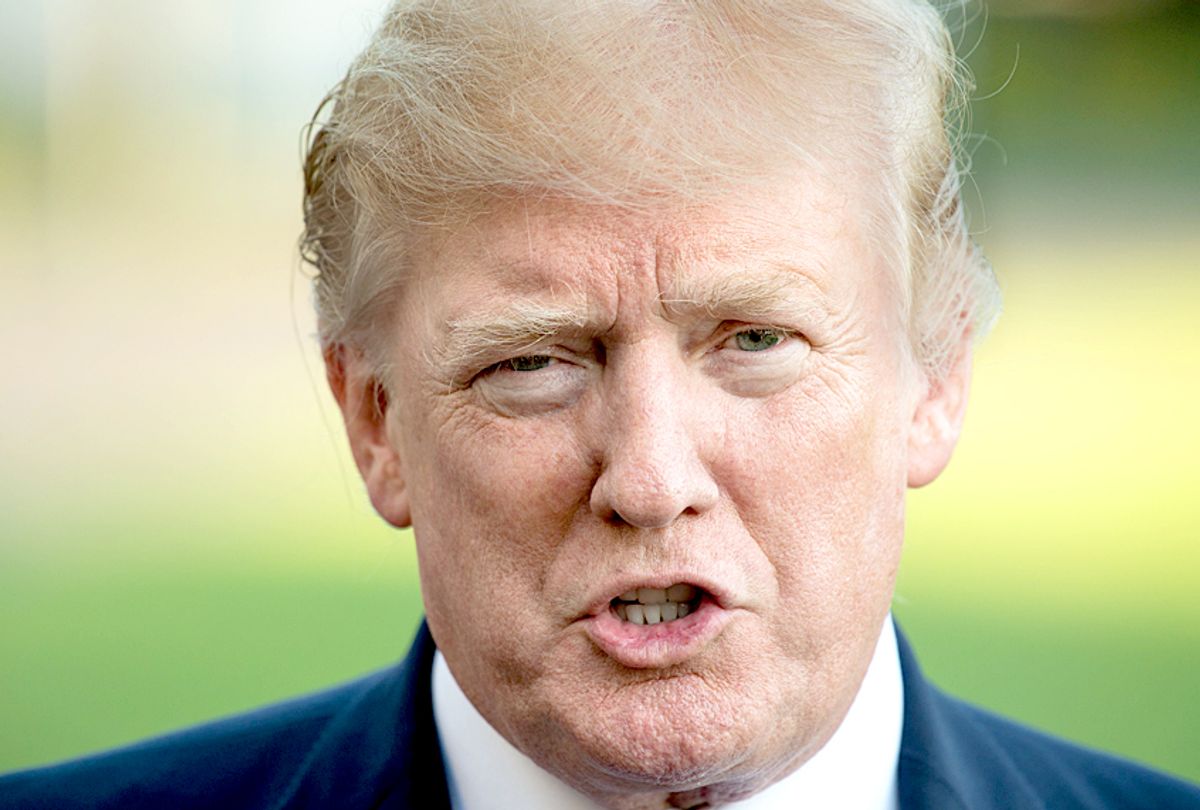In President Donald Trump's latest display of creeping authoritarianism, he suggested over Twitter that Congress Senate Intelligence Committee should investigate U.S. news agencies for publishing stories damaging to his administration, stories he claims are entirely fabricated.
"Why Isn't the Senate Intel Committee looking into the Fake News Networks in OUR country to see why so much of our news is just made up-FAKE!" Trump tweeted early on Thursday morning.
Why Isn't the Senate Intel Committee looking into the Fake News Networks in OUR country to see why so much of our news is just made up-FAKE!
— Donald J. Trump (@realDonaldTrump) October 5, 2017
Typically, the U.S. Senate Select Committee on Intelligence concerns itself with matters of foreign matters, providing budgeting and oversight for the CIA, NSA and Department of State as well as stepping over into some specific matters under review by the FBI, Treasury Department and Department of Energy. It also collaborates with the Senate Armed Services Committee on direction for the intelligence departments of the various armed services.
Arguably, the behavior of the domestic press is nowhere near its jurisdiction (nor, possibly, the jurisdiction of any other committee).
What does fall into its jurisdiction, however, is the relationship between American politicians and foreign powers. Currently, the committee is investigation the possible connections between the Trump campaign and the Russian government as well as the potential Russian use of social media and hacking to swing the results of the 2016 election.
The president's clear misunderstanding of the duties of the committee and his attack on the media comes as he continues to railing against an NBC News story which reported that Secretary of State Rex Tillerson called the president a "moron," though there is no evidence to suggest the report is "fake."
A groveling Tillerson then gave a statement on Wednesday in which he reaffirmed his commitment to Trump, but refused to directly answer if he had called him a "moron."
Before departing Las Vegas on Wednesday night, Trump was asked for his thoughts on Tillerson's statement. "I am very honored by his comments, it was fake news, it was a totally phony story," Trump said, NBC reported.
A cornerstone of Trump's ascendancy in politics is his undying obsession with and hostile attacks of any outlets who publish any kind of dissenting information. CNN, MSNBC, The New York Times and The Washington Post have become regular targets.
Even during the early stages of the 2016 election, candidate Trump claimed he wanted to revise America's libel laws in order to allow him to sue news organizations for printing anything that might be damaging to him. As he continues these threats from the Oval Office, the press freedoms protected under the First Amendment seem more and more imperiled.
This attitude towards the press has combined with Trump administration's seemingly unconditional pro-law enforcement stance. The White House's attitudes have, in turn presented threats to journalists in high-risk areas such as protests or conflict zones coming from local authorities.
On Tuesday night, for instance, an investigative reporter for The Young Turks, Jordan Chariton, and his cameraman, were both arrested by St. Louis Police and held in jail for upwards of 16 hours before being released without any charges. They were covering the continuing protests in the area that started after white police officer Jason Stockly, was acquitted in the killing of 24-year-old Anthony Lamar Smith.
TYT reporter & cameraman were covering St. Louis protests when police surrounded them and arrested them. We demand their immediate release.
— Cenk Uygur (@cenkuygur) October 4, 2017
No formal charges as of now-aka The St. Louis PD kept us, other journalists, and protestors for 16 hours with no charges #STLverdict
— Jordan (@JordanChariton) October 4, 2017
That said, Trump's attacks on the press have had unintended consequences. A new poll suggests that public trust in news outlets is on the upswing, "while confidence in the word of the president has dropped."

Shares